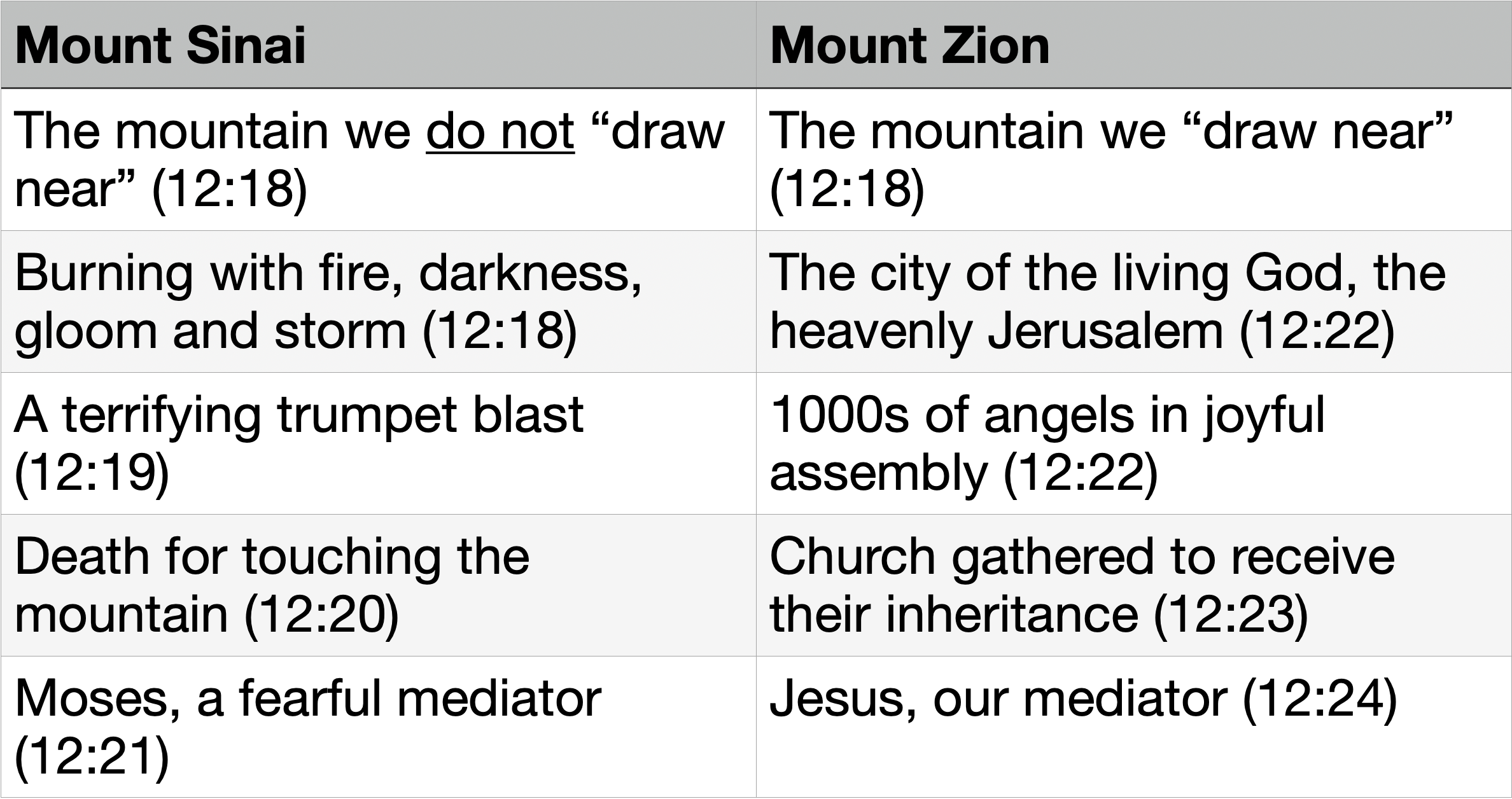Hebrews Bible StudyExemplo

Jesus Leads Us to a Better Mountain & 5th Warning (Hebrews 12:1-29)
"You have not come to a mountain that can be touched and that is burning with fire; to darkness, gloom and storm…" Hebrews 12:18 (NIV)
"But you have come to Mount Zion, to the city of the living God, the heavenly Jerusalem…" Hebrews 12:22 (NIV)
Context
The biblical background for the first mountain, described in Hebrews 12:18-21, is God’s appearance to Israel on Mount Sinai. For purposes of comparison, you will read the original context of this terrifying event in Exodus 19.
Observation
Hebrews 12 is full of commands for the readers: to throw off everything that hinders and run with perseverance (12:1-2); to consider the suffering of Jesus (12:3-4); to view their hardship from the perspective of God treating them as his children (12:5-11); to strengthen their arms and knees (12:12-13); and to make every effort to live in peace and holiness (12:14-17).
He then contrasts the mountain we do not “draw near” to (12:18-21), with the mountain that we do (12:22-24). See chart below:

He concludes with his fifth and final warning: to not refuse the one speaking from heaven (that is, from Mount Zion, the heavenly Jerusalem). It was obvious to them that those who refused his voice from Mount Sinai would face judgment; how much more could they expect that to be the case for those who refuse God’s voice from the heavenly Zion (12:25-27).
Interpretation
In this chapter, the author’s commands and final warning are based on the his view that his readers are currently standing before God on Mount Zion.
How would beginning with the fact that they are standing before Mount Zion (and all the joy connected with that mountain) empower the readers to respond to his calls to action?
How would the reminder of what it meant to stand before Mount Sinai (and all the terror connected with that mountain) be helpful to them as well?
Application
The author has suggested that Mount Zion is a place of joyful celebration and where we fully inherit everything that is ours in Christ.
Imagine yourself standing before this mountain. How can keeping this image in mind assist you as you face circumstances of difficulty and suffering? Does the fact that you are right now standing before this mountain suggest any practical implications for your life?
Escritura
Sobre este plano

This plan is intended as a guide to discovering the message of Hebrews for yourself! Grab a notebook to jot down your thoughts as you are led through a process of: (1) observing the text of Hebrews; (2) interpreting the original message to its first readers; and (3) applying the letter’s timeless truths to your life today.
More






